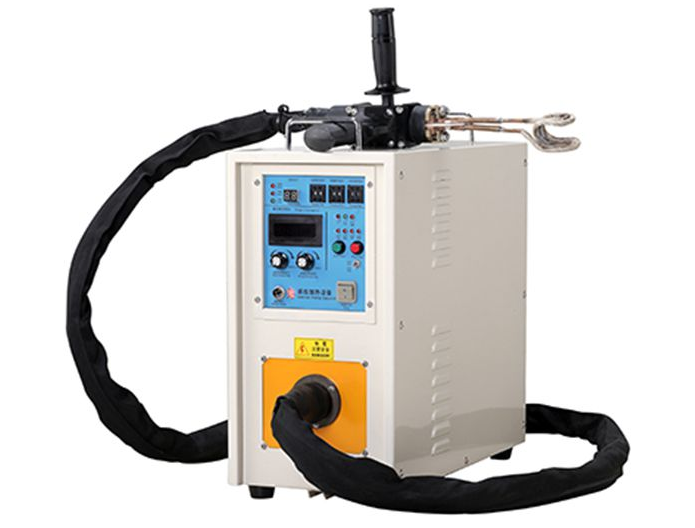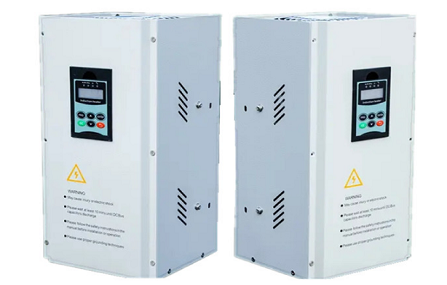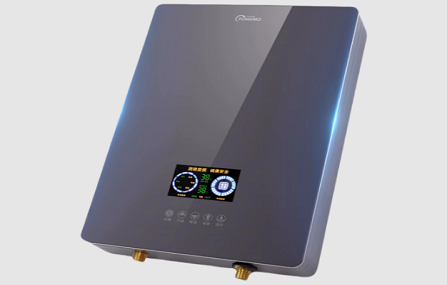Induction hardening is a vital heat treatment process widely utilized across industries to enhance the surface hardness and durability of metal components. This guide provides a detailed overview of induction hardening, including its process, applications, and the equipment involved. Whether you're new to this method or seeking to deepen your knowledge, this resource offers valuable insights into the principles and benefits of induction hardening.
Understanding the Induction Hardening Process
Induction hardening is a targeted heat treatment technique that selectively heats the surface of a metal component to high temperatures using electromagnetic induction. The process aims to create a hardened surface layer while preserving the desired core properties. An induction hardening machine generates high-frequency alternating current, which flows through an induction coil to produce a rapidly changing magnetic field.
When the metal workpiece, typically steel or cast iron, is placed within the coil, the alternating magnetic field induces eddy currents on its surface. These currents generate heat due to the material's electrical resistance, raising the surface temperature rapidly. The heated surface is then quenched, cooling it quickly to harden the outer layer and significantly improve its wear resistance and mechanical strength.
Benefits and Advantages of Induction Hardening
Induction hardening delivers a range of significant benefits, making it a go-to heat treatment solution across various industries:
1. Increased Hardness and Wear Resistance
Induction hardening creates a surface layer with exceptional hardness, substantially enhancing resistance to wear, abrasion, and fatigue. This improved durability ensures that components can withstand demanding operating conditions, extending their service life.
2. Enhanced Strength and Structural Integrity
The hardened surface layer boosts the component’s overall strength and resilience, protecting against deformation, cracking, and stress. This increased robustness allows parts to perform reliably even under heavy loads and extreme conditions.
3. Greater Efficiency and Cost Savings
Compared to traditional hardening techniques, induction hardening is faster and more energy-efficient. Its targeted heating and rapid quenching process provide precise control over the treated areas, reducing energy usage and cycle times. These efficiencies result in significant cost savings, particularly for industries focused on high-volume production.

Ultra-High Frequency Induction Heating Hardening Machine
Applications of Induction Hardening
The adaptability of induction hardening makes it a valuable heat treatment process across various industries:
1. Automotive Industry
Induction hardening is extensively used in automotive manufacturing to enhance the performance and durability of critical components such as crankshafts, camshafts, gears, and transmission parts. By improving wear resistance and strength, this process ensures reliable operation under demanding conditions.
2. Aerospace Industry
In the aerospace sector, induction hardening is crucial for components like landing gear, turbine blades, and shafts. By selectively hardening areas subject to wear and stress, the process extends the lifespan and ensures the reliability of these high-performance parts.
3. Tool and Die Industry
Precision and durability are essential in the tool and die industry, where induction hardening is applied to punches, dies, cutting tools, and molds. This treatment improves their resistance to wear and deformation, ensuring consistent performance and dimensional accuracy through repeated use.
Induction Hardening Machines: Key Features and Price Factors
Induction hardening machines are highly specialized equipment designed to efficiently carry out the induction hardening process. These machines are composed of essential components that work together to achieve precise results:
- Power Supply: Generates high-frequency alternating current (commonly in the radio frequency (RF) range) to power the induction coil.
- Induction Coil: A copper coil that produces the alternating magnetic field required to induce eddy currents in the workpiece.
- Cooling System: Integrated to prevent overheating and maintain stable operation, ensuring equipment durability and consistent performance.
Key considerations when choosing an induction hardening machine include power capacity, frequency range, coil design, and cooling efficiency. The price of these machines varies widely based on their specifications, features, and brand reputation.
To make an informed purchase, consult reputable suppliers and assess options that align with your specific operational needs and budget constraints.
Maintenance and Safety Considerations for Induction Hardening Machines
Proper maintenance and safety measures are crucial for ensuring the efficient operation, longevity, and performance of induction hardening machines. By following routine maintenance protocols and implementing safety precautions, operators can optimize machine performance, enhance safety, and achieve high-quality hardening results.
A. Routine Maintenance for Induction Hardening Machines
To maintain peak performance and extend the life of the equipment, the following maintenance procedures should be routinely carried out:
- Cleaning: Regularly clean the induction coil and cooling system to remove debris and contaminants. Always use recommended cleaning agents and methods.
- Lubrication: Periodically check and lubricate moving parts as per the maintenance manual to reduce friction and ensure smooth operation.
- Inspection: Perform routine inspections to detect any wear, damage, or loose connections. Address issues promptly to prevent further damage.
- Calibration: Periodically calibrate the power supply and temperature control systems according to the manufacturer’s guidelines to ensure accurate operation.
B. Safety Precautions for Operating an Induction Hardening Machine
Safety is essential during the operation of induction hardening machines. Operators should follow these precautions:
- Personal Protective Equipment (PPE): Always wear appropriate PPE, including safety glasses, gloves, and protective clothing, to minimize risk.
- Training and Certification: Ensure all operators are properly trained and certified in both machine operation and safety procedures. Regularly update training on safety protocols and emergency response.
- Machine Operation: Follow the manufacturer's instructions carefully. Avoid shortcuts or improvisation that could compromise safety.
- Electrical Safety: Follow strict electrical safety guidelines. Ensure proper grounding of the machine, and never work on the equipment while it is connected to power.
C. Training and Expertise for Successful Induction Hardening
Mastering induction hardening requires specialized knowledge and hands-on expertise. Operators should be well-versed in the process, machine operation, and troubleshooting. Training programs and certifications specific to induction hardening can help develop the necessary skills.
Staying informed about industry trends, technological advancements, and updated safety standards is essential for maintaining high levels of expertise in the field.
Conclusion
Induction hardening is a highly effective heat treatment process used across industries where surface hardness and durability are crucial. A deep understanding of the induction hardening process, its benefits, and its applications enables businesses to make informed decisions that boost component performance and production efficiency.
From automotive to aerospace and tool manufacturing, induction hardening continues to provide superior surface hardening results. By selecting the right machine and considering factors like power capacity and pricing, industries can fully leverage the potential of this heat treatment technique.
Embrace induction hardening and elevate the performance and lifespan of critical components in various industrial applications.








